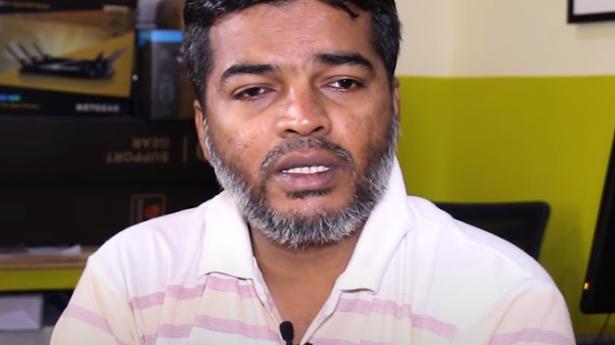
The sufferings of a wrongly accused teacher
The Hindu
Haemolymph, releasing today, is about Abdul Wahid Sheikh’s fight for justice and the pain of a commoner accused in 2006 Mumbai train bombings
For many years, Abdul Wahid Sheikh lived a life of peace and quiet. He would go to school in the morning, teach his students, spend time with them sorting out their issues, come back home in the afternoon to his family. The beautiful bubble burst when the police asked him to report to the local police station and arrested him as an accused of Mumbai train blasts of 2006 which claimed more than 180 lives.
The next nine years were spent proving his innocence. After being acquitted in the case, Sheikh decided to put it down in a book Begunah Quaidi, later translated into English as Innocent Prisoner. This Friday, Sheikh’s story makes it to cinema halls as director Sudarshan Gamare’s film Haemolymph releases at theatres across the country. Sheikh is both a relieved man, and emotional. “The film brought back memories of the prolonged stay in jail, the third degree treatment, false implication,” he shares his experience with The Hindu.
Excerpts from the interview:
I returned from jail in 2015. A year later my book was published and many filmmakers started approaching me for making a film around my life. I did not say no to any of them. After listening to my story, nobody mustered up courage to make the film. When Sudarshan Gamare approached me, I told him, ‘You are not the first or the last to talk of making a film on my ordeal’. He had read Sunetra Choudhury’s book Behind Bars, which had a chapter on me, and my book too. We had many sittings about the script. Their team went through my chargesheet of 20,000 pages and the judgment of 2,000 pages. They saw the work I had been doing.
Yes. They hired space in a hotel in Mumbai and said, ‘You will have to sit with our team for two-three days and discuss minute details of the jail days’.
Yes, every now and then explaining the prison experience, I would get emotional. But I had a larger vision that if the film actually gets made, the world will know about my experience. What the book failed to do, this film has already done; those who watched the film at the premier (in New Delhi this past week), shed a tear. The film overwhelmed the audience and people asked about the 12 other accused too.
It took two years to complete the film from research to shooting. As soon as the film’s shooting was completed, lockdown was imposed in March 2020. So the release was delayed. It will be screened at nearly 300 theatres from May 27.











